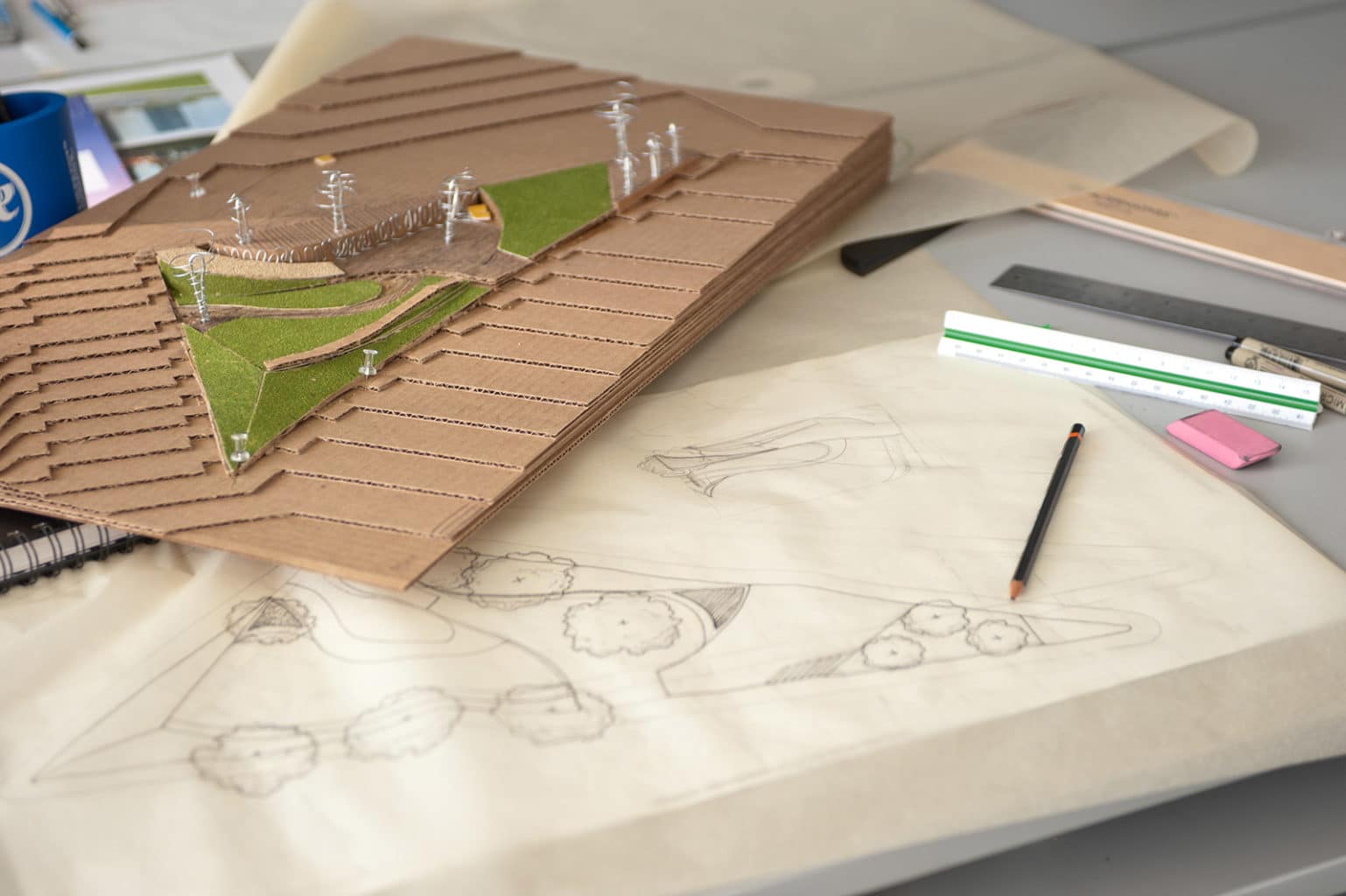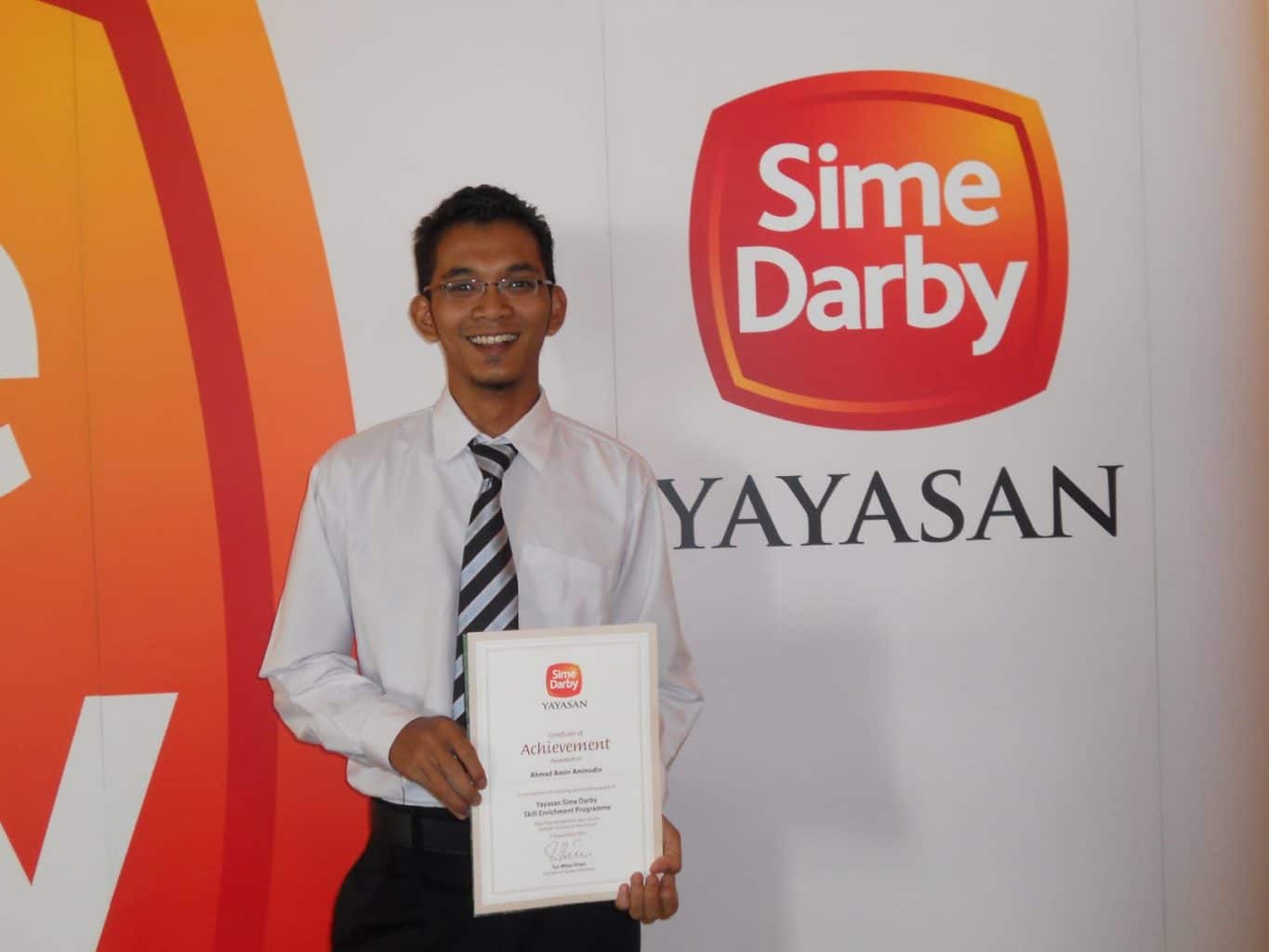We are glad to bring to you the Roux brothers scholarship, this scholarship is for British Chefs to upgrade themselves to world-class.
The Roux Scholarship, formerly known as the Roux Diners Club Scholarship, is a cooking competition for up and coming chefs in the UK. Set up by the brothers Michel and Albert Roux, it was first to run in 1984 with Andrew Fairlie being named the first winner.
It has since been run on a yearly basis, with winners going on to spend time in Michelin starred restaurants including the French Laundry and Maison Pic.
The Roux Scholarship is unique. It is a competition for chefs under 30 who are working as chefs in the UK.
The competition element is tough. It is based on technical skill, a strong palate and deep appreciation and understanding of the history of classical cooking.
This post provides you with detailed information about the Roux Brothers Scholarship 2024 and how you can successfully apply. You can scroll the table of content below to get an overview of all this post entails.
ABOUT THE SPONSORS
Michel Roux, OBE (born 19 April 1941), also known as Michel Roux Snr., is a French-born chef and restaurateur working in Britain. Along with his brother Albert, he opened Le Gavroche, later to become the first three Michelin starred restaurant in Britain, and The Waterside Inn, which was the first restaurant outside France to hold three stars for a period of 25 years.
Roux followed his brother into becoming a pastry chef, and again to England in order to open their first restaurant. Together they have been described as the “godfathers of modern restaurant cuisine in the UK”, and Roux has been inducted into several French orders and has received two-lifetime achievement awards from different publications. He was decorated during a period of National Service for France during the 1960s.
What You Need To Know About Roux Brothers Scholarship
However, the competition is only the start. What happens next is what really matters. The winning prize is a three-month stage at any three-star Michelin restaurant in the world. All expenses paid.
So, the winner is really very special because this is when the Roux family really comes out to bat. Where you choose to go is really up to you but the family will help you to find somewhere that matches your skills and ambitions.
Don’t think for a minute that this has always been easy. The brothers had to convince their colleagues and friends in France and beyond that, a Roux scholar was worth taking. After all the winner was representing their name and everything they stood for. This in itself was a gamble.
They also had to convince the chefs who agreed to have a scholar that they would give them a good experience. This is where the Scholarship part of the title was born. The winners are not just winners but students who are going to go on a journey of learning and discovery. And this is what makes the whole thing so exciting.
All the scholars I have spoken to agree that the stage was a life-changing experience and enabled them to see up close the inner workings of the greatest restaurants of their day.
This new horizon gave them a chance to see the world of chefs and food in a new light and ultimately decide which way they were going to take their careers. This world, though, used to be Europe because that was the only area covered by the Michelin map.
Roux Brothers scholarship Benefits
The 2024 Roux scholar will receive the following prizes from the sponsors.
- A gift box of Dry Aged Steaks, courtesy of Aubrey Allen.
- One bottle of The Balvenie 25 Single Barrel signed by David Stewart MBE – retail value £400, courtesy of The Balvenie.
- Two personalized, Roux Scholarship, chef’s jackets, courtesy of Bragard UK Ltd.
- From Bridor an invitation for two to Rick Stein’s in Padstow Cornwall including two nights accommodation at either The Seafood Restaurant or St Petroc’s Hotel, a three-course dinner with a bottle of wine at The Seafood Restaurant and two places on a one-day cookery course at Padstow Seafood School.
- A year’s subscription to print and digital editions of The Caterer for one year, plus two tickets to The Caterer’s annual awards, the Cateys. Known as the hospitality industry’s Oscars, the exclusive, black-tie event takes place at Grosvenor House on 3 July 2018.
- A classic collection of Global Knives and a range of accessories; peeler, fishbone tweezers, tongs, scissors and whetstone sharpener, all contained in a chef’s case.
- Courtesy of Hildon Natural Mineral Water: Three cases of 750ml, Still Glass Hildon Natural Mineral Water, delivered to home each month for a year. PLUS four tickets for Badminton Horse Trails Hospitality on Saturday 5th May 2018.
- Complimentary membership of the Institute of Hospitality for one year.
- An exclusive Magnum of Laurent-Perrier Cuvée Rosé Brut, signed by all the judges.
- An all-expenses-paid trip for two to visit the wine cellars of Laurent-Perrier at Tours-sur-Marne, including a guided tour of the cellars and a tasting of the Laurent-Perrier range. Travel by Eurostar and overnight accommodation with dinner, bed, and breakfast.
- A coffee machine for the home, plus a trip for two to visit the award-winning Caffé Musetti roasting factory with flights, transfers and a night’s accommodation in Milan, courtesy of L’Unico.
- A day at TRUEfoods followed by a three-day food tour of New York, including food stores, markets and fabulous restaurants, including flights and accommodation.
- A day of Game shooting with one night’s accommodation including dinner, bed & breakfast, courtesy of Udale Speciality Foods Ltd.
The Winner’s Establishment will receive:
- One bottle of The Balvenie Portwood Aged 21 Years.
- Thirty-Two cases of Hildon Natural Mineral Water (32 x 12 bottles of 500ml Still Glass).
- Ten kilos of award-winning coffee from L’Unico (Caffé Musetti)
- A sirloin of aged beef from Udale Speciality Foods, Himalayan Salt Chamber.
The 6 National Finalists will receive:
- £1,000 towards furthering their career development.
- A commemorative certificate, signed by the judges.
- A gift box of Dry Aged Steaks, courtesy of Aubrey Allen.
- An all-expenses-paid trip with an overnight stay at The Balvenie distillery in the heart of Speyside, where they can see the five rare crafts of whiskey-making in action and bottle their own Balvenie in Warehouse 24.
- Two personalized Roux Scholarship, chef’s jackets, courtesy of Bragard UK Ltd.
- A digital subscription to The Caterer for one year.
- A Global Knives, G-2951138, five-piece gift-boxed chef’s knife set.
- Complimentary membership of the Institute of Hospitality for one year.
- A bottle of Laurent-Perrier Cuvée Rosé Brut.
- A selection of aged meat from Udale Speciality Foods Himalayan Salt Chamber
- A copy of Bridor’s recipe book Meilleurs Recettes des Meilleurs Ouvriers de France (volume three).
- A hamper of products from Mash Purveyors.
The 6 National Finalists’ establishments will receive:
One bottle of The Balvenie Doublewood Aged 17 Years and a whiskey training session with The Balvenie UK Brand Ambassador Alwynne Gwilt.
The 18 Regional Finalists will receive:
- A commemorative certificate, signed by the judges.
- One bottle of The Balvenie Doublewood Aged 12 Years The Balvenie Doublewood Aged 12 Years and one bottle of The Balvenie Caribbean Cask Aged 14 Years.
- AG-SNI301, Kazoku set of Global Knives
- A Moka pot and coffee from L’Unico (Caffé Musetti)
- A TRUEfoods chef notebook and a tasting spoon.
The 18 Regional Finalists’ establishments:
- One bottle of The Balvenie Doublewood Aged 12 Years The Balvenie Doublewood Aged 12 Years and one bottle of The Balvenie Caribbean Cask Aged 14 Years.
Roux Brothers scholarship Rules
By entering competitors agree to be bound by the following rules of the competition:
- Age Limit. Entrants of the Roux Scholarship must be in full-time employment as a chef in the United Kingdom and be aged 22 or above, but no older than 30 years of age on 1st February. For example, a competitor can have their 30th birthday on 1st February (2024) and be eligible but if one day older they will be ineligible. (if your 30th birthday falls one day earlier on the 31st January 2024, or before, you will be too old).
- 2024 details. Full details of the 2024 competition, how to enter and mandatory instructions are on the ‘Details & Enter‘ page of the website which competitors must -read in addition to these rules before entering. Please follow the instructions carefully including the list of items that are not permitted, any transgression will result in disqualification.
- Photograph/image of your dish. At least one and a maximum of two photographs should accompany your recipe as part of your entry.
- Training & qualifications. Entrants must have undertaken some or all of their training and/or apprenticeship in Great Britain or Ireland. Entrants would normally be expected to have either passed their NVQ level 3, or their 706/1 and 706/2 or equivalent. Those who qualified in Ireland must have obtained their NTCB Certificate in Professional Cookery. However, if a candidate does not possess these qualifications, in special circumstances an exception can be made. Supporting documentation and/or references will be required from existing or past employers. Please contact the organizers on 020 8661 4900 as soon as possible to discuss if applicable.
- All entries are marked blind. Make sure your recipe, method, and photographs are anonymous, no logos or personal identifiers should be visible or it will be discarded.
- Number of entries from the same establishment. Hotel and restaurants may submit multiple entries, providing each is for a different person.
- Previous Roux scholars are excluded from entering, as are current employees of the Roux family.
- Online entries only. All entries must be submitted through the official Roux Scholarship website online link, if you send your entry via the post or as an email attachment you will not be entered into the competition. No responsibility can be accepted for lost or delayed entries. It is your responsibility to make sure it arrives on time.
- Any recipes without a clear title, at least one photograph and a full list of costs will be disqualified. Incomplete entries will be not be submitted to the judges, please check carefully that you have completed all elements of the entry process and your latest CV is included.
- Keep your own copy. Copies of entries must be kept by entrants for future reference, as correspondence cannot be returned. If you are selected to cook at the regional final you must cook exactly the same dish in your written entry on the day or you will be penalized.
- The organizers reserve the right to use and publish any submitted entry material.
- The judges’ decision at each stage of the competition is final and no correspondence will be entered into.
- The prizes as set out on this site are correct at the time of going to press but should any become unavailable for any reason, the organizers reserve the right to vary or amend them. No cash alternatives are available.
- Competitors enter and take part in the competition at their own risk. The organizers disclaim all and any liability to those competitors who take part in the competition, and to the scholar in respect of their participation in the prizes, save as covered under the organizers’ insurance arranged for the scholar.
- The organizers waive any responsibility for any tax liability resulting from the awarding of prizes.
- Relevant items from sponsors may be available for competitors to use in the kitchen at both the regional & national finals. Where applicable entrants will be briefed in advance by the competition organizers.
- All reasonable travel and subsistence expenses incurred by the finalists, to and from the competition (including regional), will be met by the Roux Scholarship, provided receipts are supplied to the competition organizers.
- The winner’s stage. The final decision on the winner’s training rests with the chairmen of the judges. The winner will have a discussion with a member of the Roux family to support them with their choice of stage destination.
- Timing of the winner’s stage. Once the destination is agreed and the host restaurant has confirmed that this is possible it will take approximately three months from this date to make the arrangements. The winner should take note of these timescales when making their own diary plan
AT THE REGIONAL FINALS
A maximum of two and a half hours of cooking time is allowed at the regional final for chefs to prepare and serve both their recipe and the dessert.
In addition to preparing your recipe, exactly as submitted on your entry form, you will be given a ‘mystery box’ of ingredients to prepare a dessert to serve four people. One ingredient can be omitted but you must use at least 50% of each of the rest of the ingredients.
Books are allowed for reference purposes on the day to help you plan your dessert, but cannot be taken into the kitchen. You will have half an hour to write out your recipe and work plan before you start cooking.
The judges will look for practical and imaginative use of the ingredients provided.
Entrants will be assessed continually while in the kitchen, by two or more judges. Marks will be awarded for culinary skills, organization, hygiene, etc.
AT THE FINAL
In a special briefing by the judges, 30 minutes before the start of the competition, the six finalists will be given the recipe and ingredients for the main dish and asked to prepare and present it. This recipe will be inspired by the classics such as Escoffier and Carême and adapted for today. Finalists will be given half an hour to prepare their own work plans, referring to reference books as necessary, books cannot be taken into the kitchen.
Finalists will then have three hours to prepare and serve their dishes. Each chef will go into the competition kitchen at 10-minute intervals to set up and commence the competition.
Rules for preparation will be similar to the regional finals. Throughout the preparation, one or more judges will be present to award marks for culinary ability. They will also be looking for entrants to demonstrate clearly some of the more traditional culinary skills, e.g. turning a mushroom.
The chef must prepare everything personally. The finished dish will be marked on presentation and taste. In the event of a tie, candidates will be judged on their approach to five specific kitchen problems. Top tips to make your entry stand out.
All entries are marked blind, this means the judges only have your recipe in front of them; names are concealed until the semi-finalists are selected.
Your aim is to get your recipe noticed by the judges as one that stands out because it works on paper and comes across as one they would like to see you cook and taste.
The judges are looking for simplicity and attention to detail; a clear well thought out recipe helps them to be able to picture your dish at each stage of the process and on the plate. See the example recipe for a guide on a layout.
Top tips to make your entry stand out:
- Read the brief carefully and think about the key ingredients that you’ve been given. Devise a recipe using the core ingredients that both showcase the ingredients, and allow your style to shine through.
- Create a name for your dish that describes it clearly.
- Use seasonal ingredients for the month the regional finals are held, usually February or March.
- Practice your dish to check it works – a number of times. Get honest feedback from your senior chef and colleagues so you can improve it before you submit your written entry, perhaps trial it on the menu at your restaurant and gauge feedback.
- Don’t over complicate your dish. Does every element add something to the dish or could cutting something out make it better? Avoid using too many complex flavors or methods.
- Practice the timing of your recipe, use the time allowed wisely. Too ambitious and you will run out of time, too easy you will finish too early – try to get a balance.
- A maximum of two and a half hours cooking time in total is allocated at the Regional Final for your recipe and a dessert you’ll be asked to cook from a ‘mystery box’ of ingredients.
- When writing your recipe and method keep it clear, don’t waffle and use spell check. See the example recipe to guide you on layout and presentation.
- Give details of how you will assemble and finish the dish.
- Use bullet points, headings or numbering to help with clarity of your approach.
- Double-check costings, are they correctly calculated and realistic?
- Make sure your entry is anonymous, no logos or personal identifiers should be visible in your recipe or it will be discarded.
- Make sure you have at least one and no more than two photographs of your dish on your entry form, preferably on a plain plate without any background distractions (no logos).
- Do not copy and paste from a recipe book, the judges will notice and penalize you for this.
- Save your recipe, this might sound obvious, but you need to make sure you cook exactly the same dish in your written entry on the day or you will be penalized.
The Roux Scholarship is not easy and requires a good deal of effort not just from individual chefs but also from employers and executive chefs. Chefs need to practice, travel to events and to spend time studying. This can only happen with the approval and backing of those above them.
It is worth noting that despite the time away and the new environment the vast majority of scholars remain loyal to their restaurants for a considerable amount of time after winning.
What the scholars bring back with them in terms of learning and experience is invaluable to their brigades and the more closely the whole team works with their chosen entrant the better they fare later.
N.B: The application for the Roux Brothers Scholarship 2024 {British Chef Scholarship} is currently closed but we’ll keep you updated as to when it reopens.
WE ALSO RECOMMEND
- DAAD Scholarship for Indian Students in Germany
- The Notre Dame Institute for Advanced Study Fellowship, USA
- TomKat Center Postdoctoral Fellowships in Sustainable Energy, USA
- Edinburgh Global Research Scholarships
- Jewish Leadership Essay Scholarship
- NREL Director’s Postdoctoral Fellowship Program
- Fully Funded UBC Visiting Scholarships for Students in India and Commonwealth Countries in Africa
- International Undergraduate Entrance Scholarships at the Memorial University of Newfoundland in Canada
- Kent LLM First Class Honours Undergraduate Scholarships at the University of Kent in UK
- Employment-Based Scholarship by Higher Education Authority, Ireland





